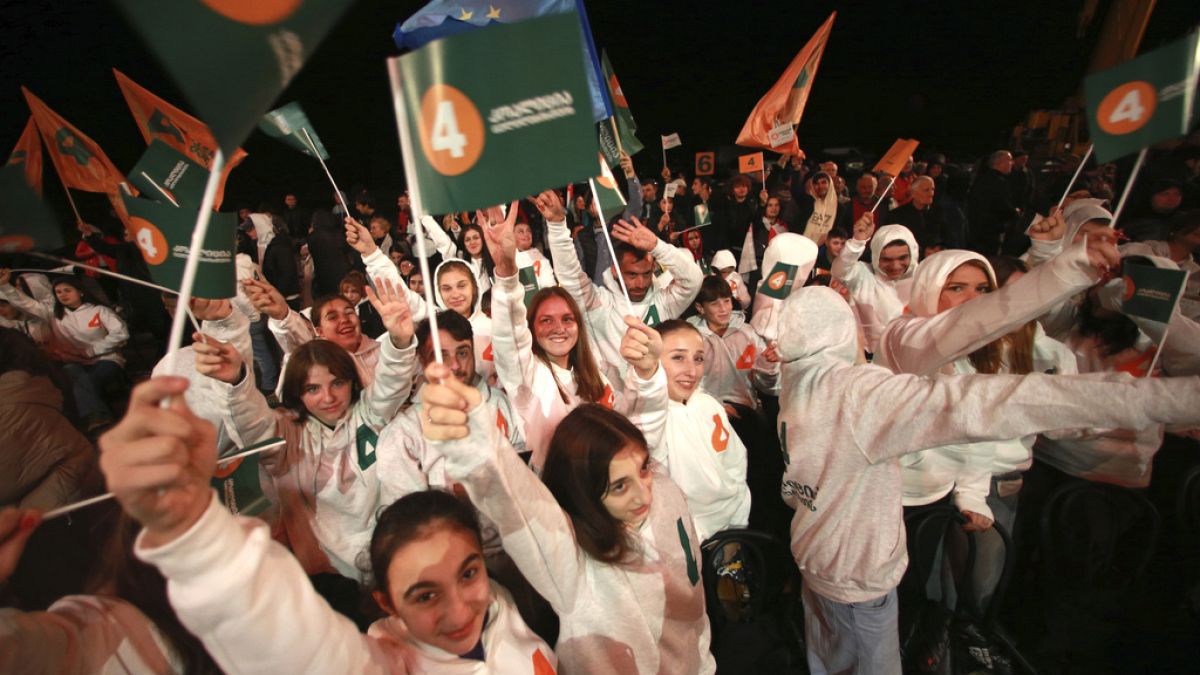Georgia’s upcoming parliamentary election is set to be one of the most crucial votes in the nation’s history. The ruling party, ‘Georgian Dream,’ is facing off against a coalition of opposition parties amid growing concerns about the country’s trajectory towards authoritarianism. A significant majority of Georgians support the idea of joining the European Union, and the constitution mandates leaders to pursue EU and NATO membership. However, Brussels halted Georgia’s EU membership bid after the ruling government passed a controversial law restricting freedom of speech, sparking fears that the country’s aspirations for EU membership could be in jeopardy if ‘Georgian Dream’ is re-elected.
The ruling ‘Georgian Dream’ party justifies the crackdown on freedom of speech as necessary to prevent external influences from destabilizing the country. However, critics, including journalists and activists, argue that the true intent is to suppress dissent and silence opposition voices ahead of the election. The government’s actions have sparked widespread protests, with tens of thousands of Georgians taking to the streets in a show of defiance against what they see as threats to democracy. The election is being viewed as a make-or-break moment for Georgia’s chances of joining the EU, as the suspension of membership talks by the EU and the UK’s decision to cancel security and defence talks highlight the growing international concern over the country’s democratic future.
Despite the government’s efforts to justify its actions as necessary for national security, many Georgians remain skeptical and fear that re-electing ‘Georgian Dream’ could lead to the permanent extinguishment of their hopes for EU membership. The EU and NATO have been key allies and partners for Georgia, offering the promise of economic development, security, and a path towards greater integration with the West. However, the government’s actions have raised doubts about its commitment to democratic values and respect for human rights, both of which are essential for EU membership.
The stakes are high in this election, not only for Georgia’s domestic political landscape but also for its future relationship with the European Union and NATO. The outcome of the vote could determine whether Georgia remains on course towards greater democratization and closer ties with the West or veers towards becoming a more authoritarian state. Many see the election as a decisive moment for the country’s democratic future, with the results likely to have far-reaching consequences for Georgia’s aspirations of joining the EU and its standing in the international community.
As Georgians prepare to cast their votes, the choice between the ruling ‘Georgian Dream’ party and the opposition coalition is seen as a critical one that will shape the country’s path forward. The government’s crackdown on freedom of speech and the suspension of EU membership talks have fueled concerns about the erosion of democracy in Georgia. The election is viewed as a pivotal moment for the country to reaffirm its commitment to democratic values and its desire to join the European Union. The outcome will not only determine the makeup of the new parliament but also send a powerful message about the country’s future direction and its standing in the international community.
In the lead-up to the election, Georgians are mobilizing in support of democracy and the pursuit of EU membership, with protests and demonstrations underscoring the importance of safeguarding fundamental rights and freedoms. The international community is closely watching the developments in Georgia, as the outcome of the election will have implications beyond the country’s borders. The choice facing Georgians on election day is not just about selecting their representatives but about determining the kind of country they want to live in – one that upholds democratic values, respects human rights, and aspires to be a part of the European Union. With so much at stake, the election on Saturday is set to be a defining moment in Georgia’s history and its ongoing quest for democracy and European integration.










